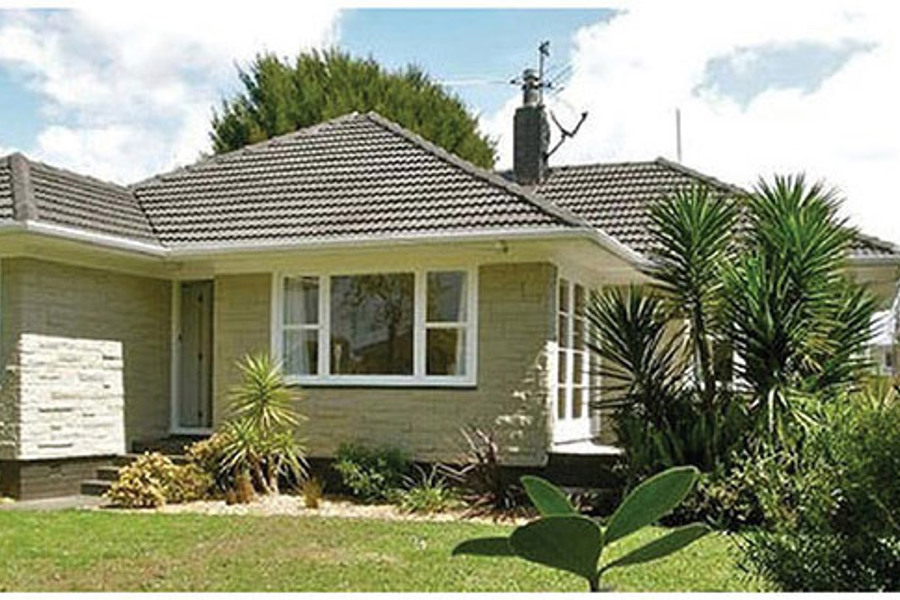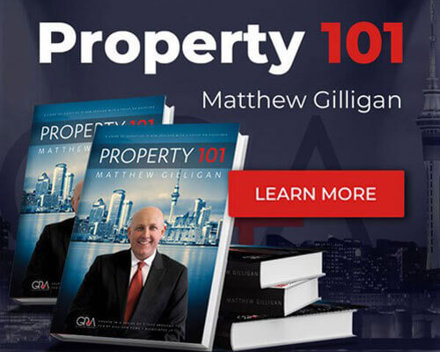Working more hours is usually not the key to improving your wealth and long-term security.
Generally, you just end up treading water and getting nowhere.

Planning for retirement is tricky. Most people are unlikely to be able to create the retirement they want simply by saving, so they turn to investment – something that provides a return on their money coupled with security. Property has always stood up as a frontrunner for investors, and even more so in the current low interest rate environment.
However, buying houses can be a minefield. To succeed, you need the right team around you so you can use their knowledge and avoid costly mistakes.
At GRA we know and actively practice all the effective property investment strategies. We can help you make money when you buy, avoid traps, and teach you how to build a portfolio, trade, and even progress to development. We can show you how to maximise your return, while minimising risk.
If you haven’t started yet or if your existing property investments aren’t doing so well (or worse, costing you to own them), we’d like to help you sort things out.
That’s why we’ve created
Property School
Property School is an online programme, available either on demand (each module being a recorded video approximately two and a half hours long plus articles and a quiz) or from time to time via live Zoom. Students have access to the recorded modules for 12 months, so you have plenty of time to review and complete the course at your own pace. We’ll teach you how a little science in your property investing can help you progress forward and provide a more targeted approach to building your wealth than the ‘let’s give it a go mate’ approach.
Upcoming dates:
START DATE
TIME
COST
PLACE
GRA Clients: Click here to get 50% off the retail price.
We don’t believe in investing in property based on emotion and hype – we believe in numbers and long-term trends.
Many investors have been concerned about the potential for a correction in the Auckland property market, given it went up by 140% after the bottom of the 2007-2008 Global Financial Crisis (GFC). Indeed, prices began to soften in mid-2017. However, and in spite of Covid-19, values continued their upward trend until late 2021. This took many, including the majority of economists, by surprise. However, we saw it coming. Why?
Underpinning this phenomenal recovery in values since 2009 were strong core fundamentals – growing population, high employment, high demand for housing and low supply.
On top of that, in 2019 interest rates began to drop, reaching historic lows in 2021. This made housing more affordable and greatly increased the yield properties produced.
House prices peaked at the end of 2021, and since then there have been changes in legislation and interest rates, which have caused prices to soften. These are things that typically happen over time in response to market conditions and changes in government.
We've also had the introduction of more permissive zoning to address the lack of supply problem, and a reduction in immigration. This is illustrated in the housing demand and supply graph below. You can see that Auckland has traditionally faced an undersupply of housing. However, in more recent times there has been a construction boom and building consents have outpaced population growth, meaning Auckland is starting to experience a surplus of supply. Along with increasing interest rates, this has contributed to the cooling off of the property market.
Factors such as these influence the property (boom-bust) cycle, and learning how to deal with such changes and adjust strategy to suit is an important part of being a successful property investor. This is what we teach you at Property School.
© Gilligan Rowe & Associates LP
You may also consider investing in the regions, which cycle behind Auckland for growth, meaning there is still potential for good capital gains to be made. While 10 years ago the smaller towns were riskier, as they were flush with housing supply and values were far more volatile (tending to crash during a down cycle and taking longer to recover), now they are following Auckland’s trend. Populations are growing as people leave Auckland looking for more affordable housing, and the smaller cities and regions are consequently experiencing high demand coupled with a lack of supply.
However, you need to pick your areas carefully, targeting those with strong underlying fundamentals. There are still places in New Zealand with declining populations, low employment, and oversupply of houses – meaning low capital growth and minimal demand from tenants – and these make for terrible investments.
Additionally, in any town or city, including Auckland, there are property ‘lemons’ to avoid – leaky buildings, leasehold properties, houses in high-crime areas etc.
One of the things we teach you is how to avoid areas with lower growth fundamentals that represent poor investment options and higher risk. These are exactly the areas that real estate agents and uninformed investors will plough their money into, thinking all property is equal – but it’s not. Come and learn why at Property School and avoid making rookie mistakes.
Upcoming dates:
START DATE
TIME
COST
PLACE
GRA Clients: Click here to get 50% off the retail price.
In addition to managing area risk and avoiding ‘property lemons’, you need to learn a lot more to be a successful investor. There are many property investment strategies that simply don’t work at various stages of the property cycle or in certain areas, and you need to adjust your strategy depending on what the market is doing and where you are investing. For instance, the types of things that our property director, Matthew Gilligan, does in Auckland that are working, don’t necessarily transfer out of Auckland where the market
conditions are different. You therefore need to learn multiple strategies and how to apply them in different environments before you can call yourself a well-prepared property investor.
Tax and finance
Another thing we discuss at
Property School is how to avoid becoming a victim of a shock event in the economy. This involves a combination of choosing the lowest risk property investment strategies coupled with appropriate taxation, asset protection and finance structures. For years GRA have been forefront leaders in New Zealand at designing taxation and asset protection structures for property investors. We know how to manage financing arrangements to minimise the ability of banks to harm your
family interests in the event of serious financial problems ensuing in your household. In the tax structures and finance module, we run over the basics of this process of being one step ahead of the banks and the IRD.
Portfolio building and yield analysis
One of the things seasoned investors understand is that some strategies, despite being fantastic, simply are not financially viable in all households. Plainly speaking, investors need to choose strategies that are financially viable and appropriate for their circumstances. You also need to become familiar with property vernacular and the numbers pertaining to property investment. Additionally, it is important to understand how tax affects your return, and part of your commercial planning and choice of strategies requires you to pick the most tax-effective strategies.
We run over portfolio building, tax implications of property investment and yield analysis in Property School to make sure you are properly prepared to make the right choices. If it is all too hard and over the top, you can always hire one of our consultants to work it out for you, but our primary goal is to educate you and empower you to do it yourself.
Upcoming dates:
START DATE
TIME
COST
PLACE
GRA Clients: Click here to get 50% off the retail price.

Property School will cover key areas you need to be aware of when looking to purchase an investment property. You will hear from GRA directors Matthew Gilligan and Salesh Chand, as well as guest speakers who are experts in their respective fields. They will share with you their tips, strategies and knowledge to get you on track and move your financial affairs and wealth ahead. In particular, we’ll show you:
- Fundamentals of property and how to use cycles and market analysis to reduce risk
- Property numbers and how to analyse deals, taught thoroughly by chartered accountants
- Free trial of GRA's Wealth Suite software during the course
- The most frequently used property investment strategies that will make you money
- How to set a pre-determined path to building an investment property portfolio that is sustainable
- How to choose the right property investment for your particular circumstances
- The different stages our economy goes through so you can make optimal financial decisions for yourself
- How to identify the various phases the property cycle passes through and how to change strategy to take advantage of them
- Ways to obtain finance to buy your own home and grow your property investments, safely
- How to use the right tax and legal structures, like trusts and companies, to protect your assets and wealth
- Auckland Unitary Plan and land banking: how to use subdivision potential to increase your wealth creation
- Sensible, smart renovating techniques to increase the value of your property
- Constructing a property plan, buying rules and maintaining momentum
- When NOT to invest
- And lots more ...
What our clients say about
Property School
Hi Matt, I have just attended the property school and just want to say it was really a worthwhile experience doing it especially for me who is planning to start as an investor (or trader). Thanks again for sharing your invaluable knowledge. P.S. Have also told my friends/colleagues, who are also interested on property, to attend the next property seminar. - Brian
To educate you must entertain. Property School was both informative and fun. I could not have coped with a boring session after a day in the office. The things I found most valuable were learning about the property wealth wheel, the value of trusts, credit lines and Life Online (which I will use again in the future). I got a lot out of it and have already recommended Property School to friends. - Peter M, NOV 2018
What I enjoyed most about Property School was the great willingness of speakers to let us interact, energy of speakers is massive! Planning strategy going forward, motivation and what mindset/approach is required to do subdivision were the highlights for me. - Anon. MAY 2018
Overall I would rate Property School with a A+. I particularly enjoyed Matthew’s presentation on subdivision. It felt like you really care about your clients. - Ross. OCT 2015
I read Matthew’s book Property 101 and then came to Property School. I have to say there is nothing 101 about either of them. Between the book and Property School you learn that there is a lot more to property investing than meets the eye. There is no doubt in my mind that GRA are a cut above the rest when it comes to property education and planning. Impressive for a chartered accounting firm – they really know their stuff! - S.C. APR 2016
Upcoming dates:
START DATE
TIME
COST
PLACE
GRA Clients: Click here to get 50% off the retail price.
Property School Topics
- Investing fundamentals and concepts
- The New Zealand property market, learning to work property cycles
- Understanding the numbers, Wealth Suite property analysis software
- Finance - loans and borrowing
- Managing personal risk with insurance
- Tax and legal structures for investors, traders and businesspeople (trusts, companies etc. for asset protection and tax optimisation)
- Assessing properties, due diligence
- Market analysis to accurately determine property values
- Investment strategies: trading, renovation, buy-to-hold, boarding houses, social housing, quake damaged properties
- Portfolio building
- Project management
- Relocatable and transportable houses, dwelling conversions
- Introduction to development and subdivision for investors
- Buying and selling: titles, agreements and clauses, negotiation, agent advice
- Rental ownership (insurance, Residential Tenancies Act, Healthy Homes Standards)
- Dealing with investing fears
Upcoming dates:
START DATE
TIME
COST
PLACE
GRA Clients: Click here to get 50% off the retail price.
If you are still not sure, consider reading Property 101 by Matthew Gilligan, or join us at our FREE Online Property Investment & Education Seminar where you will get more information on Property School as well as valuable tips on property, tax and structures.
We also offer our more advanced course: Property Development School, where we teach you how to develop residential property and make a margin worth the time, effort and risk involved.











































